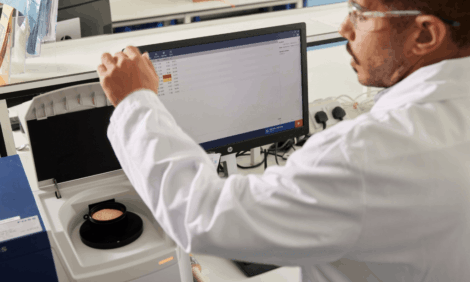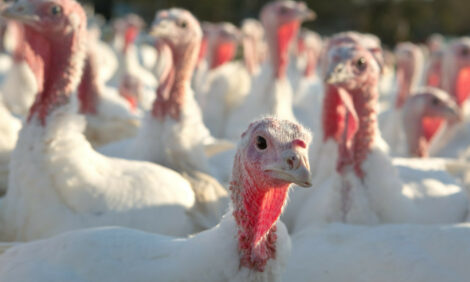



Turkey Meat Supplement for Athletes
By Chris Harris, Senior Editor ThePoultrySite. British athletes at the Beijing Olympic could be given a boost by the British turkey industry.New research into turkey meat shows that it can be a valuable source of carnosine, a natural product that can help athletes maintain performance under continuous fatigue.
Speaking at the British Poultry Council Turkey Research Conference at the Institute of Animal Health in Compton, Berkshire, Glenys Jones, a nutritionist from Chichester University, said that the carnosine - a dipeptide - produced through ß alanine and found naturally in many products and in the muscle, is free radical quenching and a physiological chemical buffer.
She said that supplementation of ß alanine for athletes had produced a 13 per cent better performance for high intensity cycling and increased performances for other athletes by prolonging training.
She said that carnosine could be regarded as a "wonder product", improving memory recall in language and communication for people with autistic spectrum disorder, helping to control symptoms of secondary diabetes, delaying the onset of Alzheimer's disease, working as an anti-ageing product and also as an anti-oxidant.
ß alanine can be found to some degree in all meats, and research at Chichester, by freeze drying meat samples and then using an HPLC analysis giving quantifiable chromatographs, showed that 800mg of ß alanine can be found in 150g of turkey breast meat, 175g of chicken breast, 248g of tuna, 385g of beef, 410g of lamb and 618g of pork.
Ms Jones said that athletes are already taking supplements to boost performance, but there is concern about taking tablets and white powders.
"People do not like taking tablets and white powders, but if it could go directly into people's diets, then that is a different matter," she said.
As the research had shown that turkey breast meat holds the highest amount of ß alanine, it was natural to see if this could be enhanced so that athletes could consume enough in their diets without having to eat excessive portions of turkey meat.
Ms Jones said that for athletes to receive a beneficial amount of the product within the meat, athletes would have to regularly eat between 400g and 500g. For the turkey breast meat to be really beneficial it would be necessary to increase the amount of histidine dipeptide (the source of carnosine) in the meat so that smaller portions could be consumed.
The university decided to experiment by adding ß alanine to the drinking water of turkeys.
The experiment took 200 birds supplied by UK turkey producer Bernard Matthews and tested both stags and hens and measured the amount of ß alanine in the meat. The birds were given the extra ß alanine in their drinking water from 12 weeks of age and it was found that the hens reached the optimum amount of listidine dipeptide in the breast meat at 19 weeks and stags at 21 weeks.
After just two weeks feeding the birds with the ß alanine supplemented water, the portion sizes were brought down to 120g. By the end of the experiment the portion sizes were reduced to 75g-80g.
She said that although it is possible for athletes to take the ß alanine anturally, it usually causes a reaction, but this did not occur with the turkeys nor when the meat with the higher proportions of dipepties were eaten.
"Turkey can provide a viable dietary source to increase muscle carnosine concentration," said Ms Jones. She said it is a natural product, produced in the meat that can help athletes train for longer periods. And she threw a gauntlet down to the turkey industry to produce and market the meat and to place it into the health food market.











